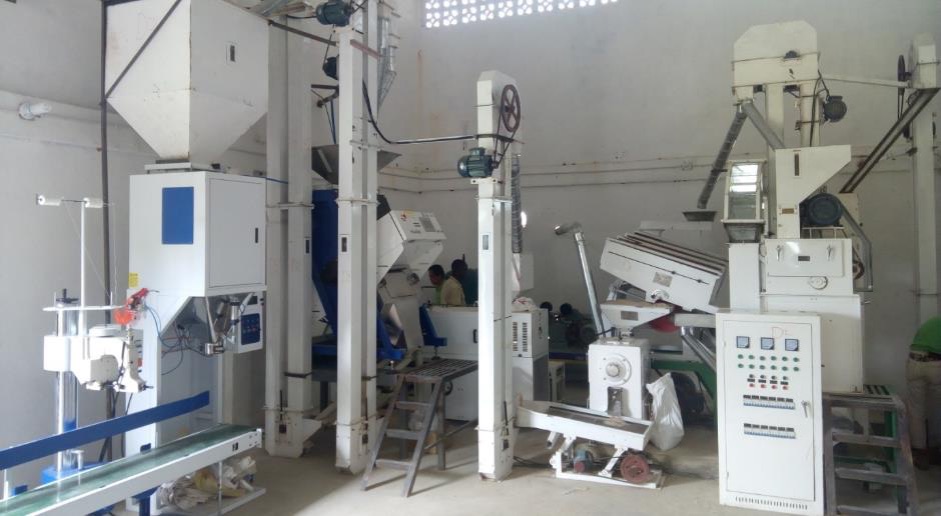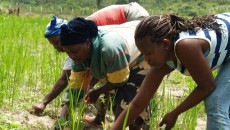HARPER, Maryland – Farmers in Maryland are now poised to transition from using manual means and more labor force to process locally-grown rice after a large capacity rice milling equipment was dedicated in Harper.
The Ministry of Agriculture, through the Smallholder Agricultural Productivity Enhancement and Commercialization program known as SAPEC, has installed a large capacity rice processing equipment to promote local production of rice and reduce food insecurity.
SAPEC is being implemented in 12 counties, including Maryland, to increase sustainable income for farmers and entrepreneurs, especially youth, women, and the elderly, by reducing poverty and food insecurity at the household level.
The program’s focal person in Maryland, Alfred Korboi, told The Bush Chicken in an interview that the equipment can process up to 18 tons or an equivalent of 325 50kg bags of rice daily. He said it would be operated by a local entrepreneur in the county.
“The machine is not a community-based machine. It will be run by an entrepreneur from the county on the basis of business. If you can see the various components, you will notice that a lot of people will be employed because there will be people working from production to processing up to the market,†he said.
In addition to the installation of the rice processing equipment, he said the project, through its crop production intensification component, earlier distributed simple tools to farmers in the county and is also providing them with technical training through district technicians.
He further disclosed that the Ministry of Agriculture is rehabilitating more than 30 kilometers of farm-to-market roads in Barrobo Statutory District to enable farmers to easily transport their produce to markets.
The county superintendent, George Prowd, extolled the Ministry of Agriculture and its partners for the successful installation of the rice milling equipment. He said the initiative brings relief to citizens, especially rice farmers.
Prowd promised that he and other local officials would engage in a campaign to encourage more citizens to practice lowland farming of rice, instead of farming other crops like sugar cane.
“We will take the lead for others to follow so that the machine can serve us and serve us well,†he said.

Maryland County Superintendent, George A. Prowd. Photo: George K. Momo
Ribon Scott, the assistant superintendent for development, also praised the ministry for the initiative and promised to work closely with agriculture extension officers in the county to encourage farmers to take advantage of the rice mill.
Scott believes that with the new technology, farmers in Maryland would be motivated to grow more rice to feed their families and supply the local market.
The regional coordinator for Communal Farming in Maryland also promised to work with citizens to increase communal farming activities. Nyema Dioh called on agriculture extension officers to improve their interactions with locals and provide his office with a monthly report.
Featured photo by George Momo



